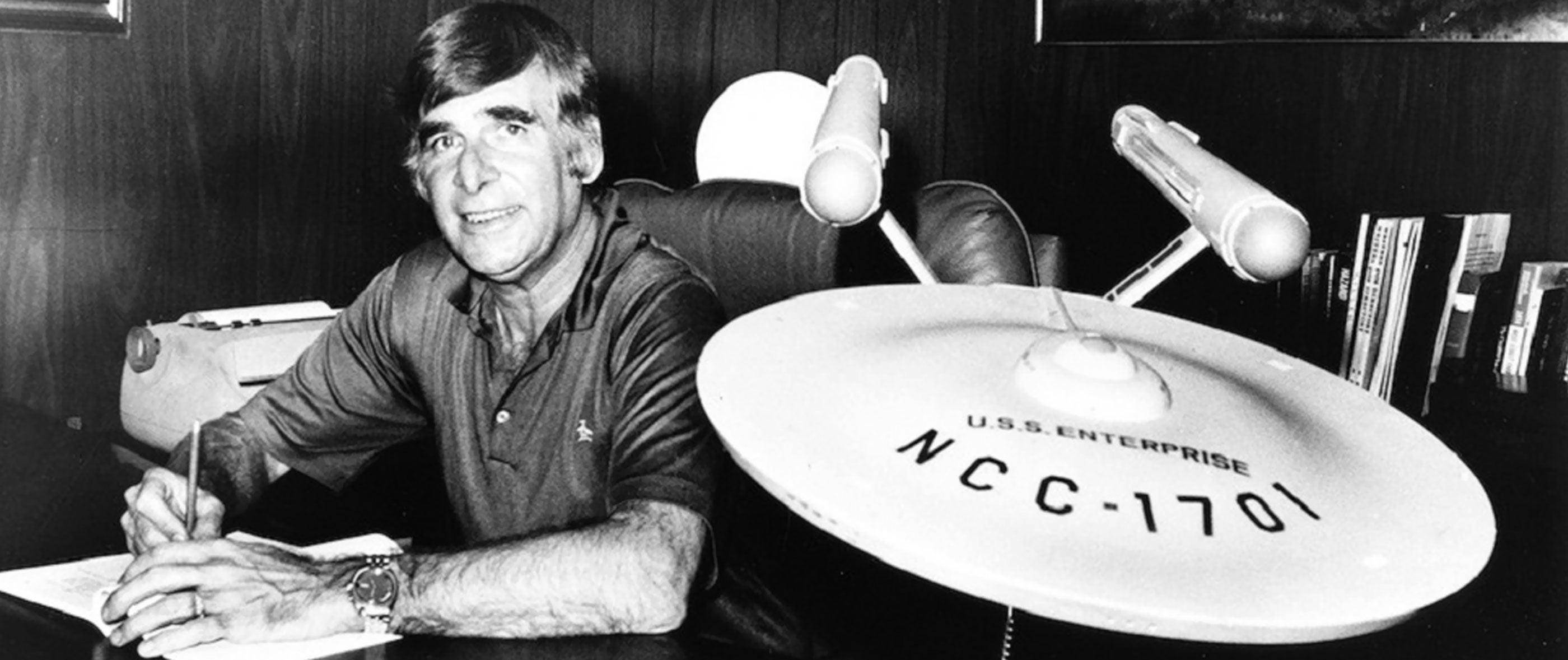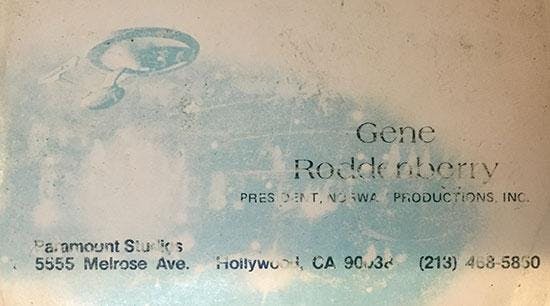Published May 23, 2016
Trek Vault: Roddenberry's Business Card
Trek Vault: Roddenberry's Business Card

You're a college student back in 1984, in the months before Star Trek III: The Search for Spock will open in theaters nationwide. You attend a Star Trek convention in New York City, hoping to snag Star Trek creator Gene Roddenberry for an interview. You luck out first by securing 15 minutes of talk time with Majel Barrett-Roddenberry. And then you meet the man and introduce yourself and ask if he'll chat with you for your college paper. Roddenberry, impressed with your moxie but running behind schedule, says Yes and No simultaneously. He can't talk now, but promises he will do it by phone with you next week. Roddenberry, a burly man with a disarming smile, leans in and gives you very, very specific instructions: take this business card, call his assistant on Monday, and she will arrange it.

